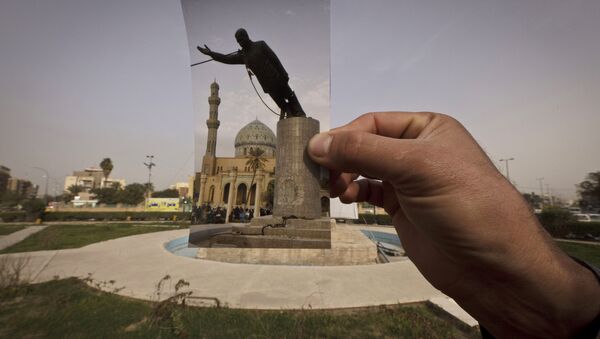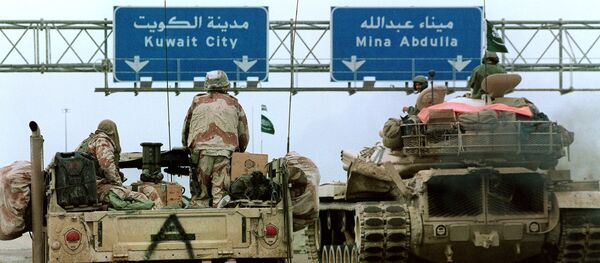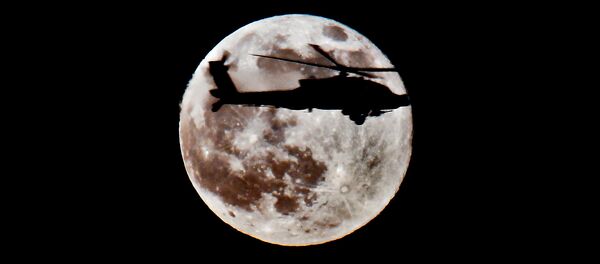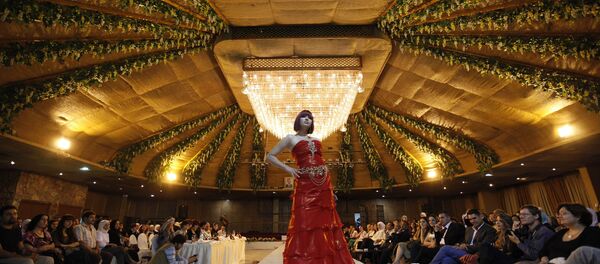Majid Elkoraichi, 64, sits bolt upright in an old Gondola chair in the corner the room, thumbing his prayer beads while blowing plumes of smoke from one corner of his mouth, while from the other a crooked roll-up cigarette loosely protrudes, seeming to defy gravitational logic. He awkwardly readjusts the position of his seat multiple times to escape the uneven floor beneath him, something he points to with humour as an apt metaphor for his rather turbulent life: "It often felt like the ground was going to swallow me whole, but I just kept on marching, like I was trained to as a young solider," he remarks with a smile.
Elkoraichi has seen and experienced it all: interstate war, civil war, foreign invasion, incarceration and permanent exodus. Yet, with the nonchalance of a man for whom these horrors are almost customary, he says "that's life." Elkoraichi is a son of Iraq's deep hinterland, born on the banks of the Tigris River in the city of Tikrit, famous for being the hometown of former Iraqi strongman, Saddam Hussein.
"Saddam was a monster, no doubt, but he provided a sense of stability and predictability to life that is now gone," Elkoraichi says with despair and a hint of nostalgia.
READ MORE: All You Need to Know About Ex-Iraqi President Saddam Hussein
Joining the Iraqi Military (1960s)
He ran away from home and ended up joining the Iraqi military at the seasoned age of 13. He remembers the poignant moment he took one last look at his mother across the street before leaving, never to return.
"I remember stepping outside of the house onto the doorstep, with the heat of the sun burning my forehead. I could see my mother, on the other side of the street, selling homemade bread, like she did every day for hours and hours to feed me and my brothers. I wanted to learn to be a man in the world, so I took one last look at her and left. All I have now is a small photo of her that I keep in my wallet."
Within two days he had made it to Tikrit's army recruitment centre, where there were very loose age restrictions on new recruits. It was 1967, the year before a bloodless coup — spearheaded in part by a young Saddam Hussein — that overthrew general Abdul Rahman Arif and brought the Ba'ath Party to power in Iraq.
"I remember turning up at the recruitment and training centre. They didn't even ask to see any identification. All they asked for was my name and how old I was. Within two hours I was given a uniform, a bunk and the next day began my training as a solider, including with a rifle, which lasted for a year," he said.
War with Israel and Iran (1970s-80s)
As the years came and went, Elkoraichi worked his way up the military ranks. A defining moment came in 1973, when Iraqi reinforcements were sent to replenish Syrian forces along the frontier of the Israeli-occupied Golan Heights.
In a conflict that became known as the 'Yom Kippur war.' The war was launched by the Arab armies with the intention of retaking areas seized by Israel during the 1967 'Six-Day War.'
Iraqi infantrymen mainly fought with Hafez al-Assad's Syria in an effort to recapture the Heights, an objective they ultimately failed to fulfil. The war lasted from October 6 to the 26 1973, and it was then that Elkoraichi cut his military teeth, earning an Iraqi Republican Guard's medal for bravery.
READ MORE: Recognizing Golan Heights as Israeli Will 'Create a Lot of Chaos' — Professor
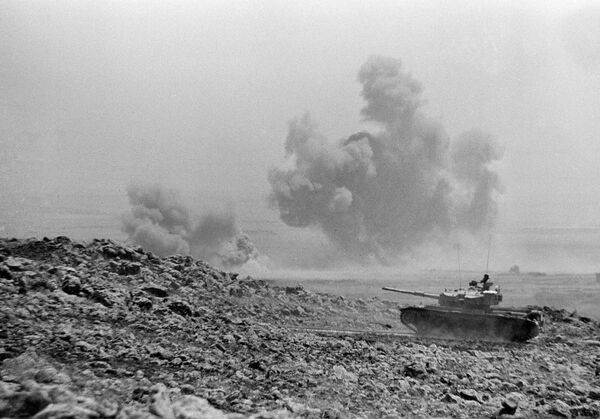
"At that time we really did not like the Israelis. Back in those days we were taught that they were the enemy, 'the great satan.' That was the case in most Arab countries, and many of us believed it to be true. So I was happy to fight in the name of Arab unity against what I saw as an illegitimate state illegally occupying Arab lands."
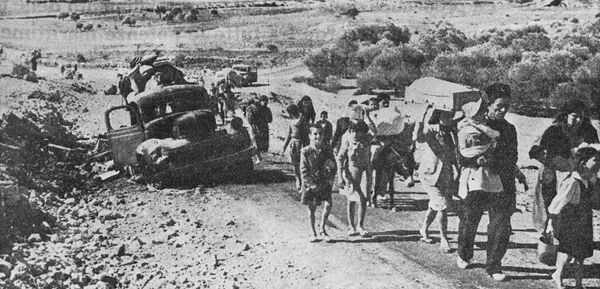
After spending two years in London on an Iraqi government engineering scholarship, where he also studied English, Elkoraichi returned to what was an increasingly volatile region. It was around this time, he says, that his good fortune became unable to survive collision with the harsh realities of Middle Eastern geopolitics.
In 1980, a year after Saddam Hussein became president, Iraq went to war with Iran.
The countries had increasingly been at one another's throats since the 1979 Iranian Islamic revolution which catapulted an obscure cleric, the Ayatollah Ruhollah Khomeini, to power. Cross-border tensions exploded in 1980 when Saddam Hussein ordered his army to cross the border into Iran and take full control of the geo-strategically important Shatt al-Arab River, which straddles both Iraq and Iranian territory. Eventually mutating into a full-scale interstate war which would drag on for nearly eight years, the conflict culminated in the deaths of hundreds of thousands.
"Suddenly the Persians, not the Israelis, were our new enemy," Elkoraichi remembers.
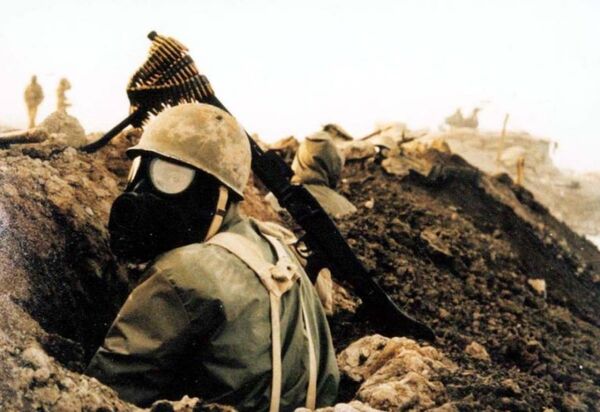
"By that point I was a tank commander that looked after a small battalion, because I was experienced in the military, in war and in engineering. We were winning well into 1982, the Iranians were on the retreat, the defensive. But then our luck changed, and it did for me personally. Me and three of my men were advancing west of Halabja toward the Iranian border on a hot August afternoon."
"Suddenly we heard a deafening explosion from over a tall sand dune in front. We thought it was the Iranians trying to target us but then came the burning sensation in our noses. It was one of our own chemical bombs that had completely missed its target and landed near us. Three of my men died. I had serious respiratory problems for the next ten years or so. Of course we later found out that many of those weapons had been supplied to Saddam by the US and UK!"
Elkoraichi resigned from his post following that incident, two years before the war with the Ayatollah Khomeini ended in August 1988, blaming government incompetence for the tragedy. "Listen, war is chaos and mistakes can happen," he reasons, "but they should have been much more cautious.
The worst was, however, yet to come.
Fighting the Americans (1990 — 2003)
"After Saddam's failed invasion of Kuwait in 1990, things got much worse for me and my people. America and much of the world imposed an embargo on food, medicine, it was an embargo of basically everything people needed to live, but I was in prison for much of it anyway."
READ MORE: 'Excited at the Prospect': UK Used Iraq's Invasion of Kuwait to Boost Arms Sales
Elkoraichi was imprisoned from 1993 until 2000, he says, after being framed by fellow former soldiers after leaving the Iraqi military.
"I came home one day and the police and army were waiting for me. There were hundreds of them. Apparently a cache of machine guns had been stolen from an army depot, and I had been accused of it, even though I no longer had access to any such facilities. I think they just needed someone to blame, and I had fallen out of favour after leaving the army during the Iran war, so they chose me," he said.
Following Elkoraichi's release in 2001, he spent a few prelapsarian years with his then 13-year-old son, much of whose childhood he had missed while behind bars. This free time also gave him the opportunity to mend fences with is estranged wife, Amal, who he had married at the age of 17.
President Bush had famously placed Iraq within a so-called 'Axis of Evil' along with North Korea and Iran. Based on the dubious pretence that Baghdad warehoused massive stockpiles of weapons of mass destruction, the allies invaded in March 2003.
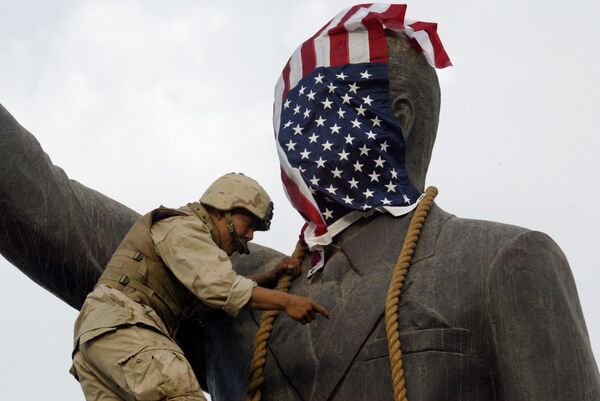
"By April, when they entered Baghdad, the Republican Guards were weak. But we Iraqis love our country, so we fought, all of us including the woman and children. Me and my son, who was fifteen, stood on the roof of our house with AK-47s and fired down on them as they passed through our area of Saddam city. We couldn't do much damage of course, they had armoured tanks, our bullets done little. But that wasn't the point. We were not going to make the invasion easy for them, we refused."
READ MORE: Noam Chomsky: US Invasion of Iraq Produced Daesh 'Monstrosity'
After the allied forces declared victory in April, like many older Iraqis, Elkoraichi resigned to fate. In December of the same year, Saddam Hussein would be captured by American soldiers, and eventually executed. Elkoraichi ended up making something of his country's turbulent situation and took a job in the catering department of a British security company. But even this was doomed to quick expiration.
Leaving Iraq (2005-2012)
"I was driving home one evening in 2005 after work on a highway leading to Dora, where I was living with my son and my wife. Suddenly, in the road ahead, I noticed a group of armed men wearing black obstructing the road. When I got out to ask them what was wrong, they told me that they knew I'd been working with who they called ‘the enemy,' and that I had two days to leave Iraq, or they would kill me along with my family. I don't know who they were, but I long suspected Al-Qaeda guys."
Elkoraichi and his family packed and left for the one country that had accepted tens of thousands of Iraqi refugees since the war began: Syria. However, once war announced itself in that country too, Elkoraichi's optimism withered into despair.
"Syria was perhaps the most beautiful country I have ever seen. The people love Iraqis, they saw us as their brothers. We were happy. But then, unfortunately, war came there too, and in 2012, we were displaced for a second time. At this time, my wife also became sick and two of my good friends were shot dead by terrorists, I don't know which group exactly, but they were Jihadis. At that time things were getting bad fast in Syria, shelling around out area in east Damascus was becoming normal, I had a wife and a son to protect."
"I had family members in Iraq who had been relocated to the Untied States and countries in Europe through the UN. I have a niece whose husband was kidnapped in Western Iraq, near the border with Syria. We never heard from him or saw him again. She applied for relocation through the UN and was quickly offered a place, with her young son, in the United States. I thought that I might as well try and see if I could try and follow in her steps."
So, that's exactly what this seasoned soldier done. He waited for about seven months before being contacted by the United Nations Refugee Agency, through whom he was offered the chance for refuge in Edinburgh, Scotland.
"I could not believe my luck. I was returning to the UK. By that point I was an old man and my son was 24," he says, still with a sense of relief in his voice.
"I remember, as the plane was making its descent into Heathrow Airport, I turned to my wife after seeing the grey skyline of London and said, ‘the UK is just as I remember it: lots of rain, but at least there are no bombs. We have been here ever since, for nearly six years now. My son soon plans to go to university, and me and my wife can rest in peace. This is home now."
Then, Elkoraichi slowly leaned forward in his old Gondola chair, loudly exhaling in an almost dramatic way intended to tell everyone in the room that he was about to unload a terrible burden from his mind: "If you want the truth, I'll tell you the truth," he says, while gazing down at his shoes.
Suddenly, he looks up and says, while a grin slowly creeps onto his face, "I miss the old days. The adventure. That was when I was most alive."
The views and opinions expressed by the speaker do not necessarily reflect those of Sputnik.
